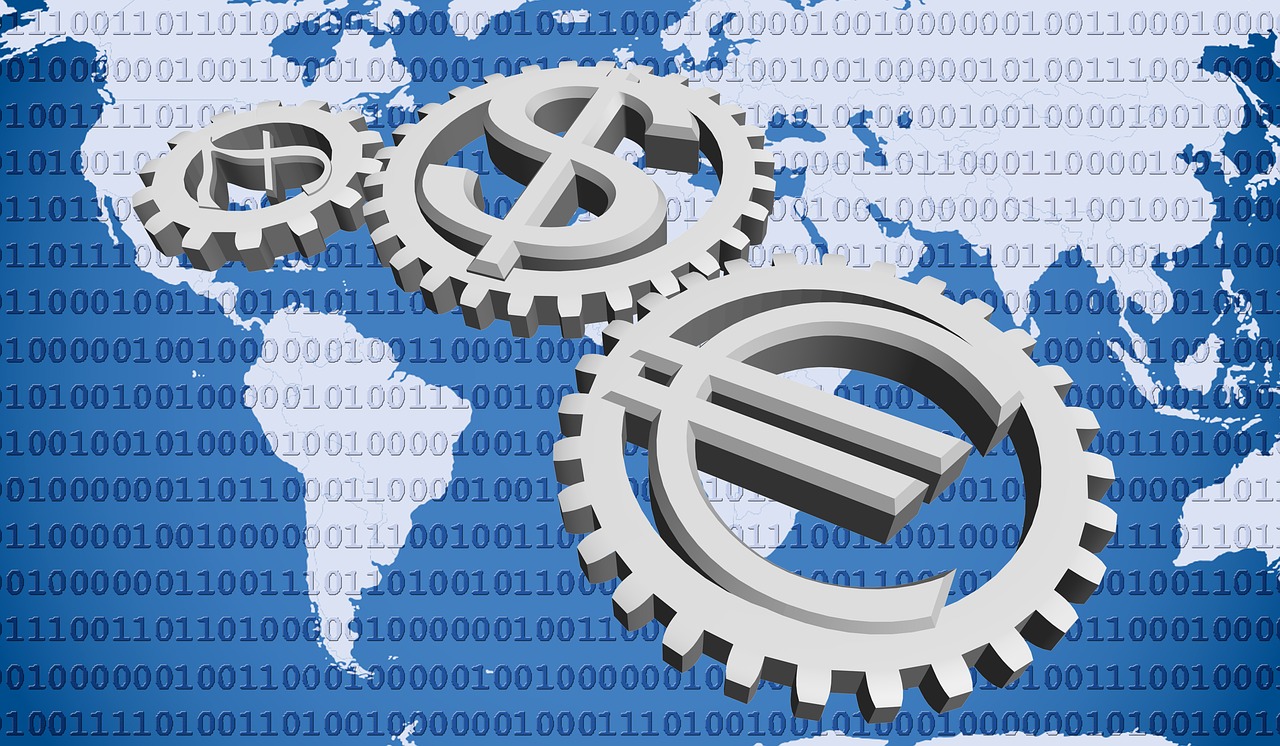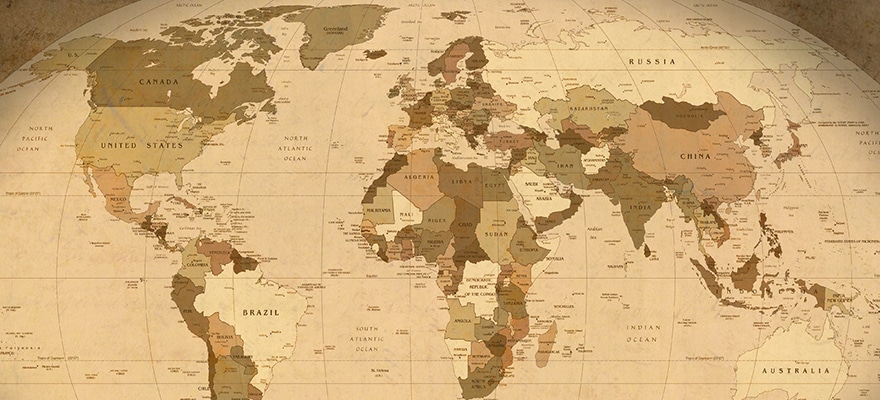This guest article was written by William Laraque who is the Managing Director of US-International Trade Services.
Four reasons
It is variably called crowd-based capitalism, the sharing economy, and the gig economy. This concept of the future of work poses a challenge for economists, government regulators and educators for 4 reasons:
1. Value added to an economy by technological progress is not captured by GDP.
GDP does not capture the value created by industrial organizations in a world of cross-border trade in value-added products. For example, if the components of an iPhone come from Germany, are tested in Taiwan after being assembled in China, what is its country of origin? The iPhone was invented, patented, designed, advertised, had its packaging graphically originated in the US.
How then is the WTO determination that it is a product of Chinese origin appropriate simply (simplistically) because this is where "the last substantive transformation" occurred? In other words, by WTO rules, the iPhone was assembled in China and is therefore determined to be of Chinese origin.
The surplus value of technologically advanced products is not adequately measured by the WTO, by international Regulation or by GDP.
2. Distribution and inequality of access.
80% of Indians have mobile phones but women in India, for cultural and other reasons, do not utilize mobile phones nearly as much as do men.
Join the industry leaders at the Finance Magnates London Summit, 14-15 November, 2016. Register here!
The availability of technology does not guaranty equality of access.
There are plenty of automobiles in Saudi Arabia but whether they are used by women in order to go to work, is another matter.
3. GDP, as Robert Kennedy related in an extraordinary speech at Kansas University, falls short of describing "all that determines a higher quality of life."
4. GDP and current regulations do not adequately measure the progress of a crowd-based economy that is going mainstream.
Economic impact
The 4 key economic impacts of this new economy are spelled out by professor Arun Sundararajan of NYU. They are:
- Increasing wealth through the more efficient use of capital
- Increasing economic growth by providing a greater variety of choice and consumption; democratizing access to both opportunity and to the things that provide a higher standard of living. Sundararajan provides the example of the more varied short-term accommodations offered by Airbnb as compared to those offered by hotels. More people have the opportunity to make money through the provision of short-term accommodation thanks to Airbnb.
- There is an economic transition wherein people become micro-entrepreneurs. The people who own the capital also own the means of production. Neither Marx nor Keynes considered such a diffusion of opportunity or production.
An increase in the population of 'tiny entrepreneurs' increases the rate of economic growth.
- Gains in economies of scale: we are moving from an industrial production base to the democratization of production. Although this will initially reduce economies of scale, some of these economies will be regained by democratizing production. In my opinion, the creation of economies of scale shifts to the enabling and empowering platform provider rather than to the corporation.
The last century's industrial model is shifting to a small business owner model. The small entrepreneur, people with below-medium income, are empowered through platforms. This results in a redistribution of income.
Policy and the Social Safety Net
The social safety net of an industrial society has largely depended on the relationship of the individual and the enterprise.
Payroll taxes, disability insurance, medical benefits, the 401-k, unemployment compensation, social security among other benefits are intended to insure the individual against disability, calamity and the cost of living during retirement. The industrial safety net no longer applies to the new economy.
The major policy impact of crowd-based capitalism will be that of requiring a new funding model for the social safety net.
The social safety net of an industrial economy is tied to the firm, the employing enterprise. In the future, the micro-entrepreneur will require a partnership among government, the individual and another provider, whether a cooperative, the platform provider or other organization. I will address this important issue in more detail in another article.
During the last 20 years, a combination of offshoring and automation has ravaged the social contract, the corporate-employee partnership model. The insurance provider must now create a new social safety net for the micro-entrepreneur.
The New Economy and Global Trade Finance
The financing of global trade is complicated by the determination of creditworthiness.
Whether an individual or enterprise is credit-worthy is determined in most of the developed world by three prominent credit agencies and by credit-trained officers at banks.
They have been rigorously trained in the evaluation of the 3 Cs of character, capital and capacity, as well as know your customer, the protocols and culture of the country in which they are domiciled, the country of the exporter, and the import regulations, laws, protocols and culture of the country of the importer.
There are creditworthiness determination vacuums throughout the emerging world and a credit officer cannot simply refer to Equifax, TransUnion and Experian to determine whether a buyer or seller is legitimate and trustworthy.
Trading across borders is complicated by the fact that referring to the usual determinants of credit and trust-worthiness is insufficient. The entire export control regime must be considered in order to determine whether trading with an individual or entity in a foreign country violates OFAC, anti-Money Laundering , denied party screening, dealing with drug kingpins, anti-boycott regulations, etc, etc.
On a more immediate level, the logistical concerns regarding adherence to Incoterms (2010), shipping hazardous materials are among the items of concern. Fedex was recently fined for shipping hazardous materials in the form of products containing lithium-ion batteries.
There are times when shipping such innocent sounding materials as dry ice is hazardous. If animals or birds are shipped in an aircraft compartment containing dry ice, they may all die as dry ice will draw the oxygen from the compartment.
One may well ask; how then will the creditworthiness of the buyer or seller be determined in cross-border e-commerce and in the new economy of crowd-based capitalism? The answer is that the enabling platforms will have to enlist and encompass by strategic alliance some 31 support services (at my last count).
It has been written that credit-determination in the new economy will be mainly experiential, a la e-Bay.
In transacting on e-Bay, historical data is accumulated on the subscribed buyer and seller so that successful payment and delivery of goods is recorded and scored.
This will not suffice for a sustainable cross-border trade platform in the new economy. Simply having a good experiential history as determined by the algorithms of the enabling platform does not address OFAC concerns, AML, anti-boycott, or the shipment of hazardous materials, among many other concerns.
The Financial Hybrid and Education
In the new economy, the determination of creditworthiness and the provision of global trade finance will involve a hybrid of classical trade finance methodologies and algorithms using experiential data.
The hybrid trade finance system will be based on platforms that include 31 support services and the deep knowledge required to safely and compliantly engage in global trade finance.
This guest article was written by William Laraque who is the Managing Director of US-International Trade Services.
Four reasons
It is variably called crowd-based capitalism, the sharing economy, and the gig economy. This concept of the future of work poses a challenge for economists, government regulators and educators for 4 reasons:
1. Value added to an economy by technological progress is not captured by GDP.
GDP does not capture the value created by industrial organizations in a world of cross-border trade in value-added products. For example, if the components of an iPhone come from Germany, are tested in Taiwan after being assembled in China, what is its country of origin? The iPhone was invented, patented, designed, advertised, had its packaging graphically originated in the US.
How then is the WTO determination that it is a product of Chinese origin appropriate simply (simplistically) because this is where "the last substantive transformation" occurred? In other words, by WTO rules, the iPhone was assembled in China and is therefore determined to be of Chinese origin.
The surplus value of technologically advanced products is not adequately measured by the WTO, by international Regulation or by GDP.
2. Distribution and inequality of access.
80% of Indians have mobile phones but women in India, for cultural and other reasons, do not utilize mobile phones nearly as much as do men.
Join the industry leaders at the Finance Magnates London Summit, 14-15 November, 2016. Register here!
The availability of technology does not guaranty equality of access.
There are plenty of automobiles in Saudi Arabia but whether they are used by women in order to go to work, is another matter.
3. GDP, as Robert Kennedy related in an extraordinary speech at Kansas University, falls short of describing "all that determines a higher quality of life."
4. GDP and current regulations do not adequately measure the progress of a crowd-based economy that is going mainstream.
Economic impact
The 4 key economic impacts of this new economy are spelled out by professor Arun Sundararajan of NYU. They are:
- Increasing wealth through the more efficient use of capital
- Increasing economic growth by providing a greater variety of choice and consumption; democratizing access to both opportunity and to the things that provide a higher standard of living. Sundararajan provides the example of the more varied short-term accommodations offered by Airbnb as compared to those offered by hotels. More people have the opportunity to make money through the provision of short-term accommodation thanks to Airbnb.
- There is an economic transition wherein people become micro-entrepreneurs. The people who own the capital also own the means of production. Neither Marx nor Keynes considered such a diffusion of opportunity or production.
An increase in the population of 'tiny entrepreneurs' increases the rate of economic growth.
- Gains in economies of scale: we are moving from an industrial production base to the democratization of production. Although this will initially reduce economies of scale, some of these economies will be regained by democratizing production. In my opinion, the creation of economies of scale shifts to the enabling and empowering platform provider rather than to the corporation.
The last century's industrial model is shifting to a small business owner model. The small entrepreneur, people with below-medium income, are empowered through platforms. This results in a redistribution of income.
Policy and the Social Safety Net
The social safety net of an industrial society has largely depended on the relationship of the individual and the enterprise.
Payroll taxes, disability insurance, medical benefits, the 401-k, unemployment compensation, social security among other benefits are intended to insure the individual against disability, calamity and the cost of living during retirement. The industrial safety net no longer applies to the new economy.
The major policy impact of crowd-based capitalism will be that of requiring a new funding model for the social safety net.
The social safety net of an industrial economy is tied to the firm, the employing enterprise. In the future, the micro-entrepreneur will require a partnership among government, the individual and another provider, whether a cooperative, the platform provider or other organization. I will address this important issue in more detail in another article.
During the last 20 years, a combination of offshoring and automation has ravaged the social contract, the corporate-employee partnership model. The insurance provider must now create a new social safety net for the micro-entrepreneur.
The New Economy and Global Trade Finance
The financing of global trade is complicated by the determination of creditworthiness.
Whether an individual or enterprise is credit-worthy is determined in most of the developed world by three prominent credit agencies and by credit-trained officers at banks.
They have been rigorously trained in the evaluation of the 3 Cs of character, capital and capacity, as well as know your customer, the protocols and culture of the country in which they are domiciled, the country of the exporter, and the import regulations, laws, protocols and culture of the country of the importer.
There are creditworthiness determination vacuums throughout the emerging world and a credit officer cannot simply refer to Equifax, TransUnion and Experian to determine whether a buyer or seller is legitimate and trustworthy.
Trading across borders is complicated by the fact that referring to the usual determinants of credit and trust-worthiness is insufficient. The entire export control regime must be considered in order to determine whether trading with an individual or entity in a foreign country violates OFAC, anti-Money Laundering , denied party screening, dealing with drug kingpins, anti-boycott regulations, etc, etc.
On a more immediate level, the logistical concerns regarding adherence to Incoterms (2010), shipping hazardous materials are among the items of concern. Fedex was recently fined for shipping hazardous materials in the form of products containing lithium-ion batteries.
There are times when shipping such innocent sounding materials as dry ice is hazardous. If animals or birds are shipped in an aircraft compartment containing dry ice, they may all die as dry ice will draw the oxygen from the compartment.
One may well ask; how then will the creditworthiness of the buyer or seller be determined in cross-border e-commerce and in the new economy of crowd-based capitalism? The answer is that the enabling platforms will have to enlist and encompass by strategic alliance some 31 support services (at my last count).
It has been written that credit-determination in the new economy will be mainly experiential, a la e-Bay.
In transacting on e-Bay, historical data is accumulated on the subscribed buyer and seller so that successful payment and delivery of goods is recorded and scored.
This will not suffice for a sustainable cross-border trade platform in the new economy. Simply having a good experiential history as determined by the algorithms of the enabling platform does not address OFAC concerns, AML, anti-boycott, or the shipment of hazardous materials, among many other concerns.
The Financial Hybrid and Education
In the new economy, the determination of creditworthiness and the provision of global trade finance will involve a hybrid of classical trade finance methodologies and algorithms using experiential data.
The hybrid trade finance system will be based on platforms that include 31 support services and the deep knowledge required to safely and compliantly engage in global trade finance.


















